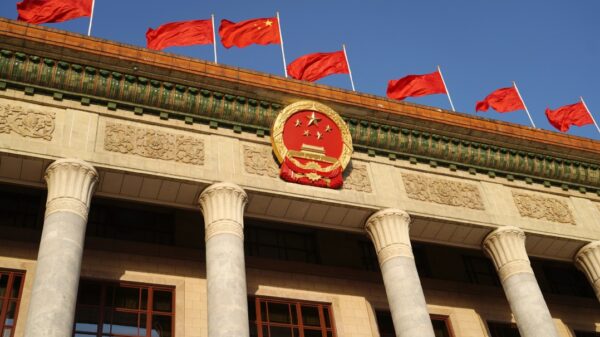The just concluded 55th meeting of the Association of Southeast Asian Nations (ASEAN) Foreign Ministers in Cambodia was not business as usual. Due to new developments on Tuesday concerning one of their main partners, China, the agenda before these emerging Asian economic giants was canvassed in an atmosphere of tension following the extremely provocative visit to Taiwan by U.S. House of Representatives Speaker Nancy Pelosi.
So much so that on Thursday the tensions boiled over leaving both the U.S. and China – both who are attending the summit – with frayed nerves over the matter. Chinese Foreign Minister Wang Yi refused to attend a gala dinner at a high-level meeting. In a statement, ASEAN pleaded restraint, warning that the escalating tensions could lead to “open conflicts and unpredictable consequences”.
“ASEAN stands ready to play a constructive role in facilitating peaceful dialogue between all parties,” the statement read. The ASEAN grouping, which includes Brunei, Cambodia, Indonesia, Laos, Malaysia, Myanmar, the Philippines, Singapore, Thailand and Vietnam, is currently hosting a summit of 27 countries.
This U.S.-China crisis proves that ASEAN has held to its founding principle of geopolitical neutrality, a fact it also proved early this year after, despite U.S. prodding, it failed to condemn the Russia-Ukraine war. “With regard to Ukraine, as for all nations, we continue to reaffirm our respect for sovereignty, political independence and territorial integrity,” stated a communique released after the U.S.-ASEAN Special Summit held in May.
This was definitely an anti-climax for the superpower following its efforts in slyly mobilizing the ASEAN to do its bidding. The message was that the Member States cannot be duped or influenced unduly. Experts say that even as the countries appreciate the U.S.’s overtures, they are fully cognizant of the covert machinations and the superpower’s use and dump policy. Which is the reason why they have avoided giving any perception of taking sides in international conflicts.
Though currently individual ASEAN members may not have sufficient clout, the community cannot be ignored due to its economic and geopolitical positioning in the Asian region. But whichever way you look at it, China is at the group’s core. The countries have collectively and individually benefited immensely from China’s economic growth, with the latter becoming one of ASEAN’s largest trading partner since 2009. According to data published in an article on “CHINA TODAY” in January, trade between the two partners shot 80 times since 1991, increasing from U.S. Dollars 8.36 billion to U.S. Dollars 685.28 billion in 2020.
While trade in most instances recorded reduced or negative growth in many instances, and global trade fell by 5.3 percent at the height of the COVID-19 pandemic in 2020, China-ASEAN trade actually increased by 6.7 percent. Significantly, China and ASEAN are members of the Regional Comprehensive Economic Partnership, making the two partners inseparable and strong regional and global players.
With this solid background, the two partners need each other to survive and grow amid the unpredictable global situation. While individual ASEAN members have equally strong ties with China, the group is the bulwark that can discourage U.S. belligerence in South East Asia.
Predictably, the U.S. has already made forays in the ASEAN region to counter and contain what it peddles as the China threat. In recent months, top administration officials of President Joe Biden’s administration have made diplomatic forays in ASEAN to sell the U.S. version of diplomatic, trade, and military cooperation. During the 2021 ASEAN Summit in October, 2021 Biden promised the countries U.S. Dollars 102 billion worth of investments across the economic spectrum. The aim is to level and eventually tilt China’s weight in the region’s balance of power.
However, U.S. attempts at infiltrating ASEAN goes back over 10 years ago with President Barrack Obama’s “Rebalance to the Asia Pacific” biased strategy in 2011. In 2017 President Trump upgraded Obama’s Asia strategy to the “Indo-Pacific Strategy”, again a biased framework that sought deeper relationships with selected ASEAN members, namely, Malaysia, Indonesia, Vietnam, and Singapore.
Of course, this was vintage U.S. divide-and-rule strategy. By giving preferential trade terms to these countries over other members, the superpower’s objective was to isolate the ones who seemed closer to China. Even now, the U.S. will definitely try such inducements during the current ASEAN summit by approaching individual countries with niceties.
While the current neutral ASEAN stand is welcome and appreciated, there is need for the group to add a rider that clearly states the inalienable right of China to Taiwan through the One-China principle. Truly, in Wang’s words to CCTV on Thursday, Pelosi’s visit was “manic, irresponsible and highly irrational”.
The strong emotions on this matter would have been avoided if the U.S. had prevailed against Pelosi not to provoke China’s wrath by interfering in its internal affairs. That single action could reverberate in the coming days and weeks and create a snowball effect that will run over the region. The world should prevail against the U.S. to avoid another conflict similar to the months-long Russia-Ukraine war.
The writer is the Executive Director of South-South Dialogues and a PhD student in International Relations at USIU-Kenya























































